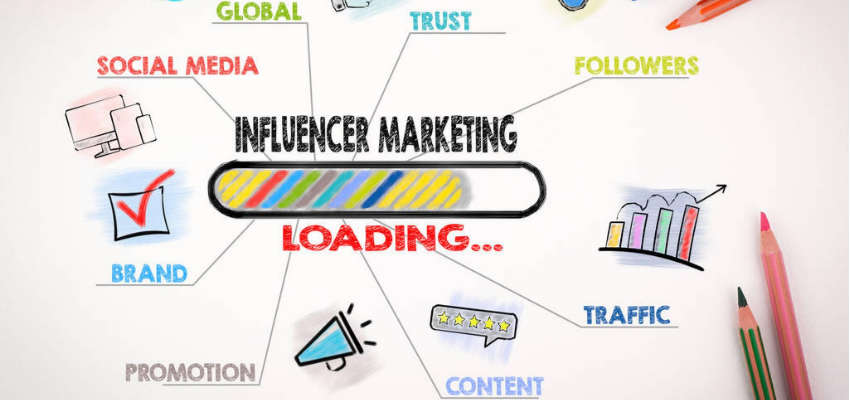Show:
Top Digital Marketing Innovations for 2024 and Beyond
The world of digital marketing is constantly changing, so those interested must go the extra mile to keep up with all the trends!

AI-Powered Personalization
Marketers from numerous companies, including Multicore, now learn the power of Artificial Intelligence (AI) to usher in a new era of personalized engagement. This is achieved through leveraging such sophisticated AI-driven tools as Adobe Sensei and Salesforce Einstein, which help brands analyze real-time consumer data and deliver hyper-targeted content and recommendations that enhance customer satisfaction, thus leading to conversions.
Conversational Marketing and Chatbots
A development in conversational marketing has been brought about by advanced chatbots together with virtual assistants. Drift, Intercom among others being market leaders employ natural language processing that facilitates smooth conversations basically guiding users through the sales journey while collecting valuable insights to better the overall customer experience.
Augmented Reality (AR) Experiences: Immersive Brand Engagement
Augmented Reality (AR) has been changing digital marketing by providing immersive brand experiences. Brands can create interactive AR content using tools such as Snap’s Lens Studio or Facebook’s Spark AR, allowing consumers to visualize products in real-world settings and thus fostering deeper engagement with their audience.
Voice Search Optimization: Adapting to Changing Search Behaviors
With the proliferation of voice-activated devices, it is imperative for brands to embrace voice search optimization strategies so as not to fall behind. Content must, therefore, be prioritized in terms of conversational keywords and local SEO techniques, aligning it with Google’s Voice Search service or Amazon’s Alexa while meeting changing user needs for those looking up something online on the go.
Video Marketing Platforms: Capturing Attention Through Visual Storytelling
Among online platforms, video content remains dominant attracting unrivaled audience engagement. TikTok, YouTube or Instagram Reels have advanced features for video analytics, live streaming and interactive storytelling offering marketers an opportunity to present captivating stories that resonate with their target group better.
Influencer Marketing Platforms: Enhancing Authentic Partnerships
In response, influencer marketing has experienced significant transformation thanks to comprehensive platforms facilitating collaboration as well as measurement processes across the board.
Others such as AspireIQ, Upfluence among others serve to establish authentic linkages between brands and influencers thereby allowing marketers to make use of social media celebrities’ authority and popularity to spread their message far and wide.

Privacy-Focused Analytics and Ad Tech: Respecting User Privacy
Marketers are increasingly focusing on privacy-focused analytics and ad tech amid growing concerns over data privacy. Google Analytics 4, for instance, is a tool that prioritizes user consent when it comes to data collection, while privacy-centric ad networks safeguard consumer data, hence ensuring legal compliance even as intensive market research goes on.
Sustainable Digital Marketing: Aligning with Consumer Values
Brands are now adopting environmentally friendly digital marketing strategies driven by sustainability. Marketers have used digital platforms to integrate consumer values through eco-friendly web hosting and cause-driven advertising aimed at promoting a sustainable future, which the world needs more.
Blockchain for Transparency and Trust: Building Consumer Confidence
Blockchain technology offers transparent and secure transactions that are reshaping digital marketing. Companies can leverage this technology to verify reviews, authenticate product information, or build confidence in customers, especially in sectors where trust is key, like in the financial industry or supply chain management.
Interactive Content Platforms: Engaging Audiences Through Interactivity
Brands have started incorporating interactive content into their campaigns/approaches in an effort to bolster audience engagement. Interactive experiences such as quizzes, polls, AR activations can be created on platforms like Ceros or Outgrow that ultimately create stronger brand relationships with customers while also giving valuable insights about their preferences.
Predictive Analytics and Customer Insights: Anticipating Customer Needs
Advancements made in predictive analytics enable marketers today to better anticipate customer behaviors/preferences than before.
Machine learning algorithms developed by companies such as Crimson Hexagon or IBM Watson make it possible for businesses to predict trends and optimize campaign strategies accordingly, aside from sending personalized marketing messages tailored toward individual consumers’ specific requirements.
Omnichannel Marketing Platforms: Delivering Seamless Experiences
Brands are revolutionizing their interactions with customers over multiple channels using the omnichannel marketing platforms. Hubspot and Omnisend allow marketers to deliver consistent and individualized content via online, offline and mobile sources which in turn improves client’s satisfaction and increases brand loyalty.
Social Commerce Integrations: Simplifying the Shopping Experience
Social media websites are increasingly transforming into potent sales outlets because of their integrated shopping features. Shopify’s Shop feature as well as Instagram Shopping allows brands to let customers buy directly from social media posts, or ads thus providing a seamless buying experience to peoples leading up to conversion rates.
GDPR and Privacy Compliance Tools: Safeguarding User Data
Due to more stringent privacy laws, marketers now rely on compliance tools to ensure adherence to such acts as GDPR. These platforms operate openly for consent, can store data, and have privacy policies that any company would use when targeting global privacy laws.
Final Thoughts
The digital advertising industry in 2024 can be characterized by a blend of innovation and evolution. This shapes how companies interact with clients in order for them to be able to grow their business.
However, companies need to change and develop along with the trends if they want to stay ahead of the competition while delivering meaningful experiences. Of course, professionals can help with it.

 Return to Previous Page
Return to Previous Page








